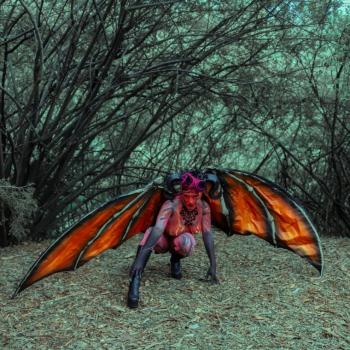There’s a feeling that the whole world has gone populist! Country singer Jason Aldean’s song, “Try that in a Small Town” suggests that populism invaded America. I argue that populism has been part of the American political scene since at least Andrew Jackson
Mr. Aldean sounds really pissed! He paints a picture of small-town resentment and revenge that is distorted and less than honest. He’s not really singing about small towns; he’s singing about people who are angry, resentful, and ready to take control.
The Face of Cain
I have the perfect biblical metaphor for these resentment-filled country singers in Genesis 4. “Cain a tiller of the ground.” Cain’s offering was rejected by God. “So Cain was very angry, and his countenance fell. The Lord said to Cain, ‘Why are you angry, and why has your countenance fallen?”
Cain’s facial expression told the truth: resentment filled his face. Country music fills the honey-suckled air with deep-grained resentment. The country musicians trumpeting populism with three notes on the guitar are aiding and abetting the resentment explosion in the USA. They croon about hard times, being disrespected, persecuted, silenced, and mistreated, while performing to sold-out concert crowds, living in multi-million-dollar homes, driving expensive cars, and living in luxury. They are singing and selling resentment, but it’s all for show as they sing loud and proud.
Pay attention to the visual rhetoric of Cain’s face. His face is a large part of his inner emotions. His face becomes an orchestra of resentment. “His countenance fell.” The head bowed, eyes lowered and forehead taut with dark burrows of resentment – this is the mark of Cain. Silvan Tomkins, affect theorist, argues that “the face reticulates us into a social body.”
When Cain lowers his head and eyes, he falls backwards into alienation. His face and body receive the full brunt of shame. He cries out to God: ““My punishment is greater than I can bear!” The combination of resentment and shame shows the face of Cain as unsmiling, tortured, rigid, glaring. Perhaps there is a bit of smirk or sneer from his upper lip. What we see is a man shamed but unrepentant and riddled with resentment.
The Sons of Cain
The resentful, chip-on-the-shoulder gang has a genealogy that doesn’t require a DNA test. These are the Sons of Cain. Cain, the farmer, the country boy, man of the land, common man, has a history in the United States known as populism.
Populism has always grown well in the fertile soil of the South, but like the ubiquitous Southern Baptists, populism has now infected all fifty states. Thomas L. Connelly, in Will Campbell and the Soul of the South, tells the southern tragic tale. “Southerners had to face the reality that God had deserted them. It is hard to overestimate the immense depth of the belief that God was on their side that permeated the South. After Appomattox, spiritual depression set in – insecurity, guilt, violence, resentment – and above all – alienation.” Connelly calls it “the long anger.” Charlie Daniels Band held out the hope in their hit song, “The South’s Gonna Do It Again.” Donald Trump tapped into this resentment and anger to win the 2016 election. He continues to pump resentment into the American bloodstream.
The resentment in some country music mirrors the “countenance of Cain.” Hear the resentment. It’s there in Merle Haggard: “Let this song I’m singin’ be a warnin’ / When you’re runnin’ down my country, man / You’re walkin’ on the fightin’ side of me.”
It’s there in Garth Brooks, “I’ve Got Friends in Low Places”
“I got friends in low places
Where the whiskey drowns
And the beer chases my blues away.”
And in Blake Shelton “Kiss My Country Ass”
“I said, if you got a problem with any of that
You can kiss my natural born
Redneck to the bone
Ever lovin’ country ass
That’s right.”
Country music, of course, thrives on multiple tropes: Nostalgia, good old boys/rednecks/the common man / everyman relatability, relationship struggles, sex, an idealized past, the old-time religion, booze and patriotism. Feeding all these is the archetypal trope: resentment. If pride is the mother sin that birthed all the rest, resentment is the producer of many of the themes of country music.
Our nation has periodic outbursts of populism. It is like an “unclean spirit [that] has gone out of a person, it wanders through waterless regions looking for a resting place, but it finds none. Then it says, ‘I will return to my house from which I came.’ When it returns, it finds it empty, swept, and put in order. Then it goes and brings along seven other spirits more evil than itself, and they enter and live there, and the last state of that person is worse than the first. So will it be also with this evil generation.”
Michael J. Lee says, “Populism begins with the constitution of a virtuous ‘people’ then envisions a robust ‘enemy,’ decries the current ‘system,’ and finally finds the promise of reform in ‘apocalyptic confrontation.’”
Idealizing Small Towns but Resentment Still Shows Its Face
Country music has been churning out ballads celebrating small town America since the first three notes ever played on a guitar or a fiddle. The resentment of “Try that in a Small Town” has not been a dominant theme in country music.
The defensiveness, the insecurity, the chip on the shoulder has always haunted country music. When you add Southern bluster, hypermacho behavior, and braggadocio, you have a underbelly of projected violence. Such a deep-seated, deep-throated rebellion of country boys, known as “good ole boys,” isn’t a learned behavior; it’s in the air we breathe as children.
Katherine J. Cramer, reflecting on the political environment in Madison, Wisconsin, says, “It has gotten downright nasty around here. People, in casual conversation, are treating each other as enemies. And this is in a place where people are notoriously nice. Seriously nice. But times change.” In The Politics of Resentment, Cramer says she made two discoveries: a significant rural-urban divide and the powerful role of resentment.
The angry, polarizing, take-no-prisoners violent rhetoric of our political scene has spilled out everywhere. The demagogues in America, falling over one another, inflame the public on a daily basis, and the media piles on the resentment twenty-four hours a day, seven days a week. Then there’s the conspiracy theorists, the serial liars, and the threatening rhetoric of stochastic terrorism, veiled commands, acts of violence, chaos, mayhem and murder. Our politicians are behaving like unrepentant reprobates with one-track minds – destroy the other side at any price.
Resentment, Revenge, and Violence
Country music has been plucking the chords of resentment since its inception. Hidden in the music there are related themes of revenge and violence. Populism has always been a fertile Delta black soil for the growth of populism. This story hasn’t appeared with the blustering, threatening lyrics of Aldean. Willie Nelson blasted out a much more violent song in 2003, “Beer for My Horses.”
Nelson sings:
“Grandpappy told my pappy, back in my day, son
A man had to answer for the wicked that he done
Take all the rope in Texas
Find a tall oak tree, round up all of them bad boys
Hang them high in the street for all the people to see that.”
Aldean sings:
“Well, try that in a small town
See how far ya make it down the road
Around here, we take care of our own
You cross that line, it won’t take long
For you to find out, I recommend you don’t
Try that in a small town.”
Nelson’s song celebrates hard-nosed law and order and lynching with a gathering at the saloon for “beer for my horses and whiskey for my men.” This violent, vigilante song didn’t create a ripple in our politics, but Aldean has faced scorched-earth criticism.
Until we deal with the resentment and the politicians fanning the flames of that resentment, we will not make any progress in being one nation “under God” or anyone else.













